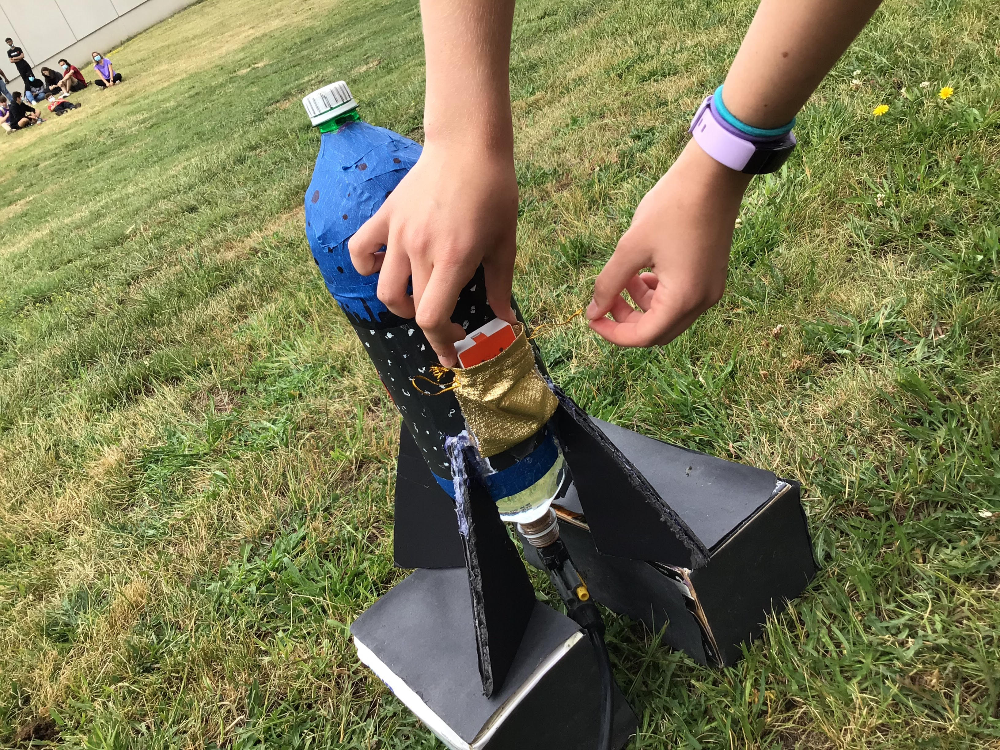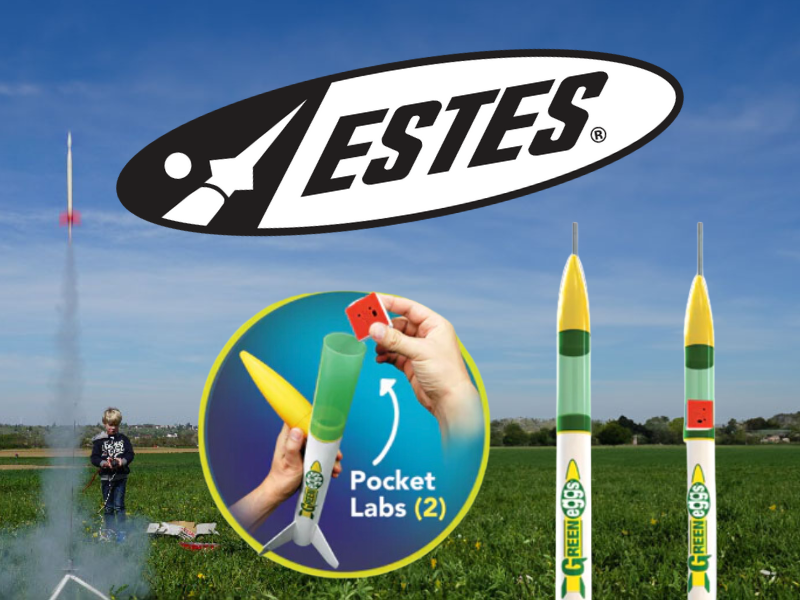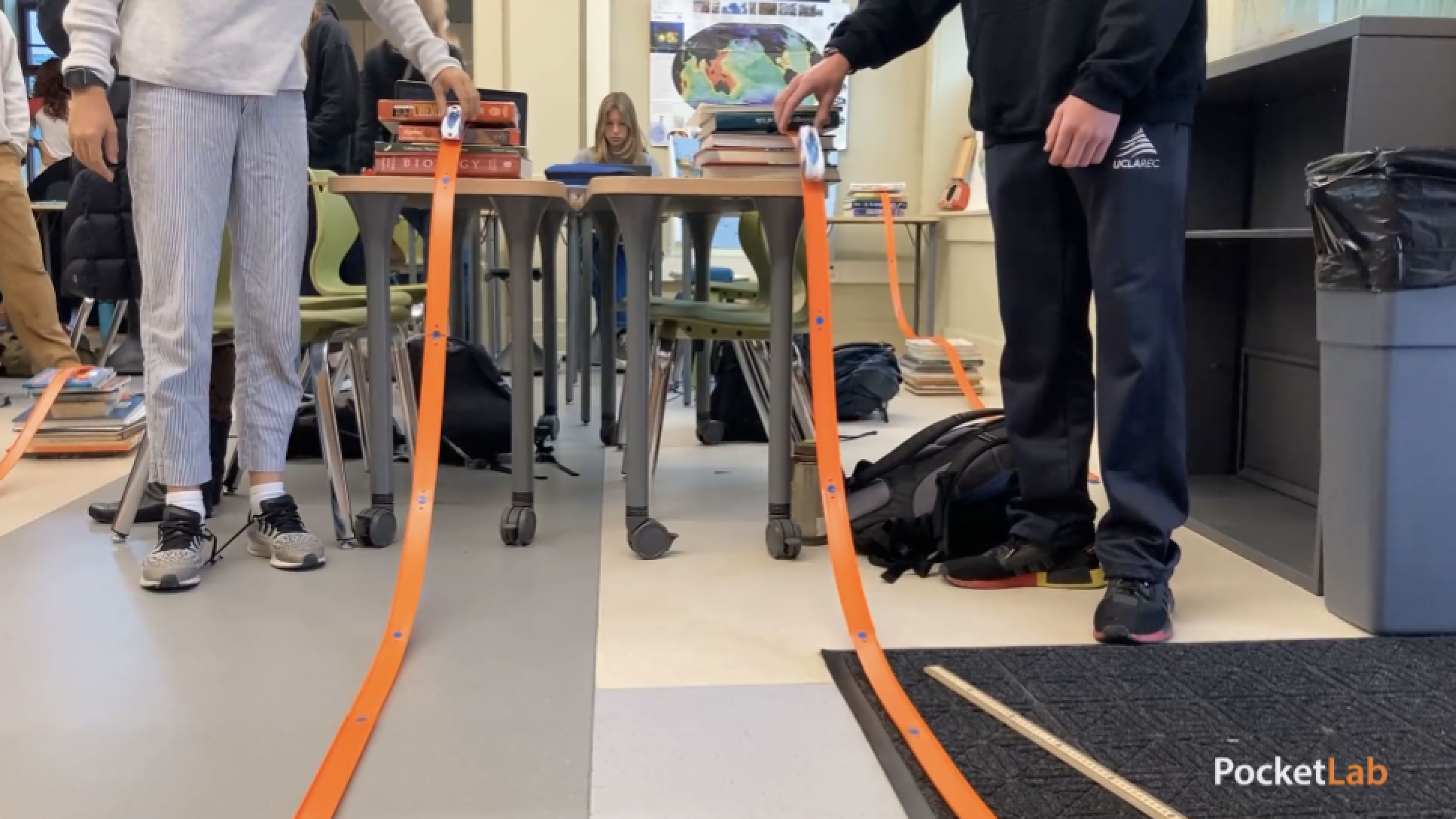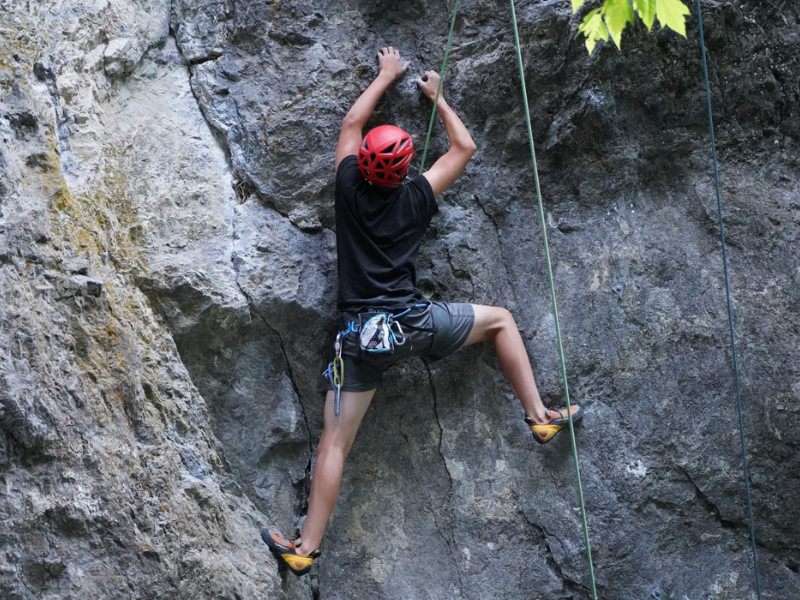Rocketry Lessons: Exploring Real Data with PocketLab and Estes Rockets
Learning science is no longer confined to the corners of traditional classrooms. The educational technology market has been redefined by innovative...
2 min read
Cool Things Being Done With PocketLabs Jun 6, 2023 10:27:33 AM

At St-Lambert International High School in Canada, 8th-grade students embarked on an exhilarating scientific journey by launching homemade water rockets crafted from two-liter bottles. Let's dive into their exciting project that uses PocketLab sensors to measure and analyze the fascinating phenomena that occur during these launches. We will explore the intersection of hands-on experimentation, technology, and the spirit of scientific inquiry!
The 8th-grade students at St-Lambert International High School embraced the challenge of designing and constructing water rockets using readily available materials. These rockets, powered by water and air pressure, provided an excellent platform for the students to investigate various scientific concepts, such as force, acceleration, and trajectory.
PocketLab Voyager played a vital role in enhancing the water rocket project. These wireless sensors enabled the students to gather accurate and precise measurements, facilitating a deeper understanding of the scientific principles at play during rocket launches. Moreover, the data collected with PocketLab sensors added a quantitative dimension to their experiments, enriching their analysis and conclusions.
By attaching PocketLab sensors to their water rockets, the students were able to measure, record, and analyze essential parameters throughout the rocket's flight using PocketLab's free software application, Notebook. These sensors provided valuable data on factors such as acceleration, altitude, velocity, and atmospheric conditions, allowing the students to examine the rockets' performance and understand the forces governing their motion.
As the students launched their water rockets, PocketLab sensors captured real-time data, providing a wealth of information for analysis. The acceleration readings offered insights into the initial propulsion and subsequent deceleration of the rocket, while altitude measurements allowed the students to study the rocket's vertical motion. By analyzing velocity data, they could track changes in speed and explore how different design modifications impacted the rockets' flight characteristics.
With the data in hand, the students were able to apply scientific principles to explain and interpret the observed phenomena. They analyzed the forces acting on the rockets during flight, including thrust, drag, and gravity. Through calculations and graphical representations in PocketLab Notebook, the students deepened their understanding of how these forces influenced the rocket's trajectory, stability, and overall performance.
-1.png?width=450&height=340&name=image%20(42)-1.png)
The water rocket project provided an excellent opportunity for the students to engage in an iterative design process. By analyzing the data collected with PocketLab sensors, they could identify areas for improvement and make informed modifications to their rocket designs. This hands-on experimentation and problem-solving fostered critical thinking skills and encouraged a growth mindset among the students.
To encourage teamwork and effective communication, the students collaborated in groups to analyze and interpret the data from their rocket launches. They shared their findings, insights, and design recommendations with their peers, fostering a dynamic learning environment. The incorporation of PocketLab sensor data added a visual and quantitative element to their presentations, enhancing engagement and understanding.
The 8th-grade students at St-Lambert International High School in Canada embarked on an exciting scientific adventure by designing and launching water rockets. The integration of PocketLab sensors into their project allowed them to explore scientific concepts, analyze real-time data, and make evidence-based conclusions. By combining hands-on experimentation, technology, and collaboration, these students experienced the thrill of scientific discovery while honing their critical thinking and problem-solving skills. The water rocket project, enhanced by PocketLab sensors, exemplifies the power of practical learning experiences in nurturing young minds and inspiring a lifelong love for science.
You can find lessons just like this from our partner Estes Rockets in their Notebook lesson channel.

Learning science is no longer confined to the corners of traditional classrooms. The educational technology market has been redefined by innovative...

Project-Based Learning (PBL) is a dynamic classroom approach in which students actively explore real-world problems and challenges and acquire a...

Hello teachers and science enthusiasts! Today, we delve into the exhilarating domain of sports science, spotlighting the compelling and demanding...